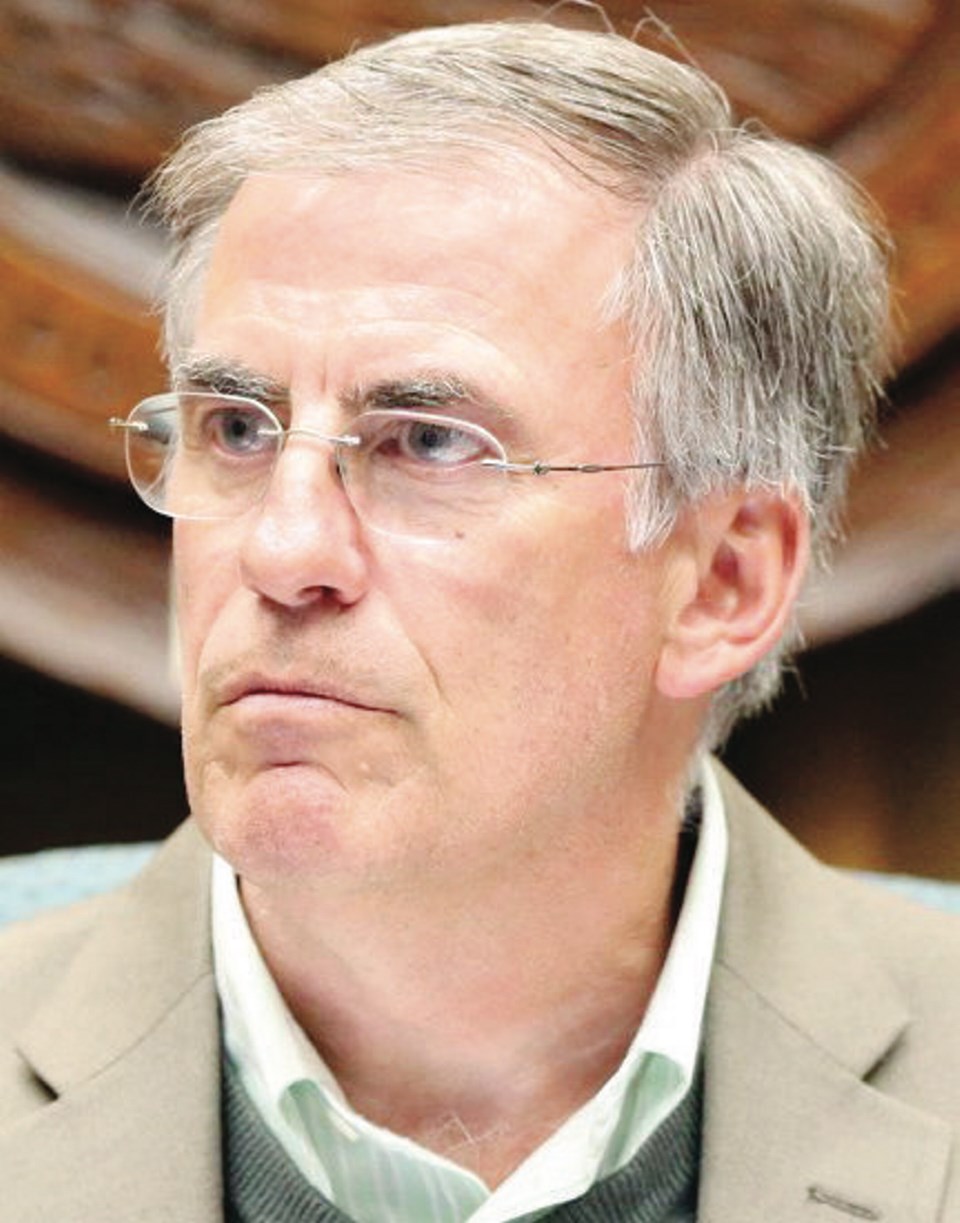The return to the provincial sales tax this month is costing B.C. municipal governments and school districts millions of dollars — a “claw-up” some leaders are calling on the province to address.
The change forced the City of Victoria to budget an additional $900,000 for the Johnson Street Bridge replacement, and the Greater Victoria School District had to cut $330,000 from its classroom supplies budget in order to pay the tax.
Under the HST regime, the province provided rebates to reduce the tax burden on public bodies, ensuring they paid no more tax than they did under the PST. But when the HST was dumped via referendum in favour of a return to seven per cent PST and five per cent federal GST, the rebates went with it.
While many public bodies realized the impact of returning to the PST, some leaders are calling on the province for help.
Surrey Mayor Diane Watts is pushing for the province to find a way to reimburse municipalities for major capital projects. Under the PST, Surrey has to pay the province about $2.5 million in additional taxes on two new recreation centres. Watts plans to take the issue to the Union of B.C. Municipalities, which represents the interests of local governments.
There is only one taxpayer, said Victoria Mayor Dean Fortin, noting that for every dollar Victoria taxpayers pay, eight cents goes to the municipality, 42 cents to the province and 50 cents to Ottawa.
“The bridge is an example of what the larger issue is,” said Fortin, who supports the idea of compensation. Now is the time for the province to help local governments meet the challenges of major infrastructure projects, he said.
The bridge budget is $92.8 million, and although Victoria will fork over almost $1 million in PST, the province is not contributing to the project.
The city also generates annual capital expenses of between $30 million and $50 million that are also subject to the PST, adding hundreds of thousands of dollars to its bottom line, Fortin said.
Saanich Mayor Frank Leonard isn’t interested in pursuing new PST policy. He said there was never any expectation for HST rebates after the tax was abandoned, and Saanich budgeted as such. The PST was factored into the contractor’s cost for the $16-million Craigflower Bridge project, he said.
Surrey seems to want “the best of both worlds,” Leonard said. “They want the HST rules in a PST environment — I don’t think anybody conveyed that expectation.”
The Union of B.C. Municipalities declined to comment on the issue.
The return to the PST has eroded the purchasing power of the Greater Victoria School District, said secretary-treasurer Debra Laser.
“Budgets are limited, so the fact that now you’re spending those limited dollars on additional tax just means you’re not going to be able to buy as many supplies or as much paper as you could otherwise.” The school district shaved $330,000 off its budget for classroom supplies to pay PST.
But not all public bodies stand to lose.The situation will be close to revenue-neutral for Royal Roads University and the Vancouver Island Health Authority. The University of Victoria does not expect much impact, either.
On some projects — such as the Capital Regional District’s $783-million sewage treatment system — the tax is less under the PST. The bridge would have cost $10 million more under the HST, officials say.
There is no PST on labour costs for capital projects, as there was under HST, but construction materials or other goods are taxed at seven per cent.
“While this is entirely consistent with the practice under the old PST, it may result in higher construction costs on material as compared to the HST,” said a Ministry of Finance spokesman.
Jordan Bateman, B.C. director of the Canadian Taxpayers Federation, has no sympathy for “mayors crying poor” when they didn’t manage to pass on any HST savings to property-tax payers. If mayors, councillors and school trustees thought the loss of the rebates was such a big deal, they should have campaigned loudly to let the public know during the referendum campaign.
“Now they have no one to blame but themselves.”



